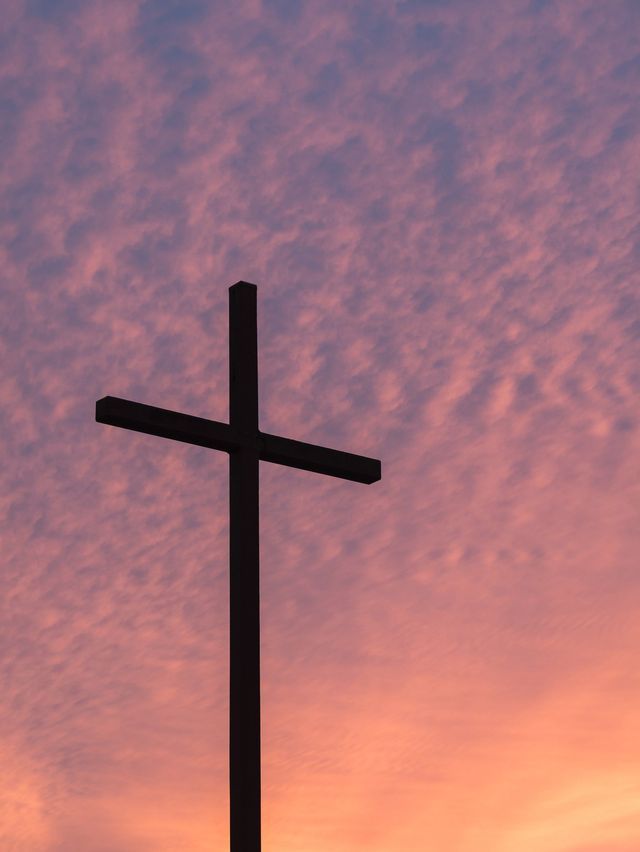Loving Christ, Loving Others
We are a welcoming Catholic community called by God to live out the message of Christ in love and service to all people. Our parish mission is:
To proclaim the Gospel of Christ to our local community in word, deed, and truth.
TWENTY-SEVENTH SUNDAY IN ORDINARY TIME
Taking Care of Business
When we were kids, my brothers and sisters and I thought that you were not supposed to say the blessing before meals in a restaurant. We were probably afraid of being embarrassed if non-believers saw us praying. I think of that when I hear St. Paul telling Timothy, “God did not give us a spirit of cowardice but rather of power and love and self-control” (2 Timothy 1:7). Our readings mention the difficulties that people of faith will encounter, and each reading has its own way of facing those hardships.
Jesus gives the practical advice: Look at the difficulties of being a disciple as just part of your job. So if the Lord says I must forgive those who hurt me, or be patient with customers, or share what I have with the poor—no problem; it’s part of the job of a disciple. Too tired to go to church after work on a holy day? Just taking care of business. Paul reminds us in the second reading to stir the gifts of the Spirit into flame. If you take time to pray every day, if you look for God in other people, if you see difficulties as your share of the cross—you will begin to experience those gifts. We can trust that this is more than just wishful thinking by going to the first reading. When the prophet cries out for help with the misery and violence in the world, he hears God’s promise that the vision (of hope for deliverance) will be fulfilled even if it seems to be delayed. We too hear that promise when we start to get discouraged, for God’s promise “will not disappoint” (Habakkuk 2:3).
Vigésimo Séptimo Domingo del Tiempo Ordinario
Taking Care of Business
De niños, mis hermanos y yo pensábamos que no se debía bendecir la comida antes de comer en un restaurante. Probablemente temíamos pasar vergüenza si los no creyentes nos veían rezando. Pienso en eso cuando escucho a San Pablo decirle a Timoteo en la segunda lectura: “Porque el Señor no nos ha dado un espíritu de temor, sino de fortaleza, de amor y de moderación” (2 Timoteo 1,7). Nuestras lecturas mencionan las dificultades que encontrarán las personas de fe, y cada lectura tiene su propia manera de afrontarlas. Jesús da un consejo práctico: Considera las dificultades de ser discípulo como parte de tu trabajo. Así que si el Señor dice que debo perdonar a quienes me ofenden, o ser paciente con los clientes, o compartir lo que tengo con los pobres, no hay problema; es parte del trabajo de un discípulo. ¿Estoy demasiado cansado para ir a la iglesia después del trabajo en un día festivo? No importa, voy de todos modos. Simplemente estoy haciendo lo que hay que hacer. Pablo nos recuerda en la segunda lectura que debemos avivar los dones del Espíritu hasta que estén encendidos. Si dedicas tiempo a orar cada día, si buscas a Dios en los demás, si ves las dificultades como parte de la cruz, comenzarás a experimentar esos dones. Podemos confiar en que esto es más que una simple ilusión al leer la primera lectura. Cuando el profeta clama por ayuda ante la miseria y la violencia del mundo, escucha la promesa de Dios de que la visión (de esperanza de liberación) se cumplirá aunque parezca demorarse. Nosotros también escuchamos esa promesa cuando empezamos a desanimarnos, porque la promesa de Dios “no defraudará” (Habacuc 2,3).
Online Giving
Text to Give
For prayer requests
CCD Registration
Only love makes way for unity, which is the fruit of God’s action. For a Christian, having enemies is forbidden. We must love all people, not just those who think like me, or practice the same faith as me. The important thing here is to ask myself what makes me the master of my heart. Or even better, what allows the Lord to be the master of my heart? Is it love or hatred? If, despite wanting to forgive, I cannot do it because I have been a victim of terror or hatred, then I need to ask that question: Who is the master of my heart? Love offers something new to us: to include the enemy, so that it is not hate or revenge that has the last word. In the reign of the Holy Spirit, evil is never the end.
MASS TIMES
EUCHARISTIC CELEBRATIONS (Holy Mass)
Monday - 9:00am-Mass at St. Henry Chapel - Convent
Tuesday - 10:30am Mass at the Chapel in the Catholic Center for Charismatic Renewal
Wednesday - 9:00am Mass at St. Henry Chapel - Convent
Thursday - 9:00am Mass at St. Henry Chapel - Convent
Friday - 11:00am at the Chapel in the Catholic Center for Charismatic Renewal
Saturday - 4:30pm English
Sunday - 8:30am Spanish
11:00 am English
Holy Days of Obligation - 6pm
Sacrament of Reconciliation:
Every Saturday from 3:30pm-4:20pm
Lunes - 6:30pm Grupo de Oracion Segundo y Cuarto de cada Semana del mes (y si hay quinta)










